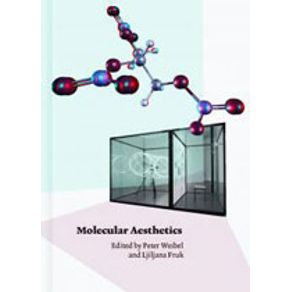Thanks to advances in molecular science and microscopy, we can visualize matter on a nanoscale, and structures not visible to the naked eye can be visualized and characterized. The fact that technology allows us to transcend the limits of natural perception and see what was previously unseeable creates a new dimension of aesthetic experience and practice: molecular aesthetics. This book, drawing on an exhibit and symposium at ZKM | Center for Art and Media Karlsruhe, documents aesthetic developments in what Félix Guattari called the 'molecular revolution.'Just as artists in the Bauhaus movement began to use such industrial materials as metal, Plexiglas, and alloys as raw materials, artists today have access to new realms of the molecular and nano. The industrial aesthetic of machinery and material has been transformed into an aesthetic of media and molecules. Molecular Aesthetics suggests ways in which art can draw inspiration from the molecular sciences-and ways in which science can use art to make experimental results more intelligible and comprehensible. The authors of the essays collected in the book discuss the creation of molecules of remarkable beauty and the functional properties that stem from a few geometrical principles of molecular design; address the history of molecular structure representation; examine the meaning of molecular aesthetics for scientists; and compare chemical structures to artworks.


